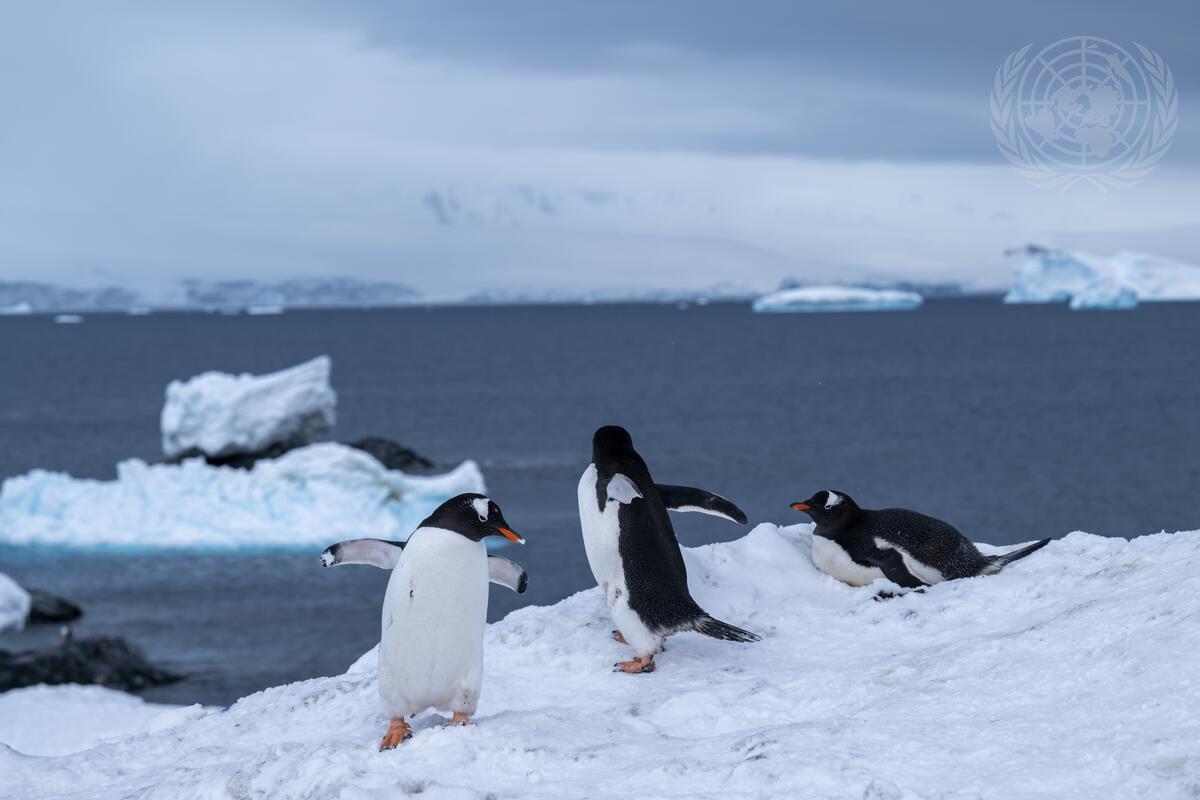

Between March 18 and April 9, Israeli forces have struck housing and tents for internally displaced people (IDPs) on 224 occasions during 36 separate strikes, according to the UN rights office, OHCHR
Earlier on Friday [2025-04-11], Israeli authorities issued two new displacement orders “covering vast areas in northern and southern Gaza,” UN Spokesperson Stéphane Dujarric said at the regular noon briefing in New York.
“Together, these areas span more than 24 square kilometres – roughly the size of everything south of Central Park here in Manhattan.”
UN News, 2025-04-11: “Gaza: UN rights office condemns Israeli buffer zone plan”
story
The UN human rights office said on Friday it fears that Israel may intend to permanently remove civilians in Gaza as part of an expanded buffer zone, amid evacuations orders and escalating bombardment.
Hostilities in the Gaza Strip resumed mid-March following the collapse of the ceasefire and Israel’s border closure.
As it enters its sixth week, the denial of aid into the enclave has left more than 2.1 million Gazans trapped without access to food, drinking water, and basic services.
Israel in recent weeks has ramped up its attacks on civilian infrastructure such as residential buildings and camps, leaving many more dead or missing under the rubble.
Between March 18 and April 9, Israeli forces have struck housing and tents for internally displaced people (IDPs) on 224 occasions during 36 separate strikes, according to the UN rights office, OHCHR.
Vast new exclusion zones
Earlier on Friday, Israeli authorities issued two new displacement orders “covering vast areas in northern and southern Gaza,” UN Spokesperson Stéphane Dujarric said at the regular noon briefing in New York.
“Together, these areas span more than 24 square kilometres – roughly the size of everything south of Central Park here in Manhattan.”
Some medical facilities and storage sites containing critical supplies are located within the newly designated zones, prompting aid coordination office OCHA to warn that this could have life-threatening consequences for people in urgent need of care.
“This leaves Palestinians with less than a third of Gaza’s area to live in – and that remaining space is fragmented, it’s unsafe and it’s barely livable following 18 months of hostilities.”
‘Forcible transfer’
OHCHR spokesperson Ravina Shamdasani also highlighted the growing trend in attacks against media workers, reporting that at least 209 journalists have been killed in Gaza since the deadly Hamas-led terror attacks of October 2023, as Israel continues to deny international media entry into the Strip.
The OHCHR spokesperson acknowledged that the temporary evacuation of civilians in certain areas can be legal, under strict conditions.
But "the nature and scope of the evacuation orders raises serious concerns that Israel intends permanently to remove the civilian population from these areas in order to create a so-called buffer zone”, she said.
“Permanently displacing the civilian population within occupied territory amounts to forcible transfer, which is a grave breach of the Fourth Geneva Convention and a crime against humanity.”
War crimes
Combatants need to demonstrate compliance with the rules of war, particularly the principles of distinction – meaning defenceless civilians should not be targeted – as well as proportionality and precaution.
“Intentionally directing attacks against civilians not taking a direct part in hostilities constitutes a war crime, further compounding the desperate conditions for Palestinian civilians,” Ms. Shamdasani said.
OHCHR has also repeatedly warned that collective punishment and the use of starvation of the civilian population as a method of war, constitute crimes under international law.
Ms. Shamdasani also stressed that her office was “seriously concerned that Israel appears to be inflicting on Palestinians in Gaza, conditions of life increasingly incompatible with their continued existence as a group”.
Supplies pile up
With stocks of drugs sharply declining, medicines and other essential supplies have been piling up at the shuttered border crossings.
Almost 36 million tons of supplies in Dubai are on standby for entry into the enclave, according to Dr. Rik Peeperkorn, World Health Organization Representative (WHO) for the West Bank and Gaza.
Medical evacuations for patients in need of urgent treatment have slowed significantly. Likewise, the number of international emergency medical teams deployed has dropped, depriving hospitals of the help they crucially need, “because the caseload is immense”, Dr. Peeperkorn stressed.
“We urgently call for the immediate resumption of medical evacuation through all possible routes, particularly restoring the medical referral pathway to the West Bank and Jerusalem.”








UN News, 2025-04-14: “Sudan war: ‘Darkest chapters’ ahead as Darfur massacre claims over 100 lives”
continued
Relevant news from MSF (Médecins Sans Frontières / Doctors without Borders), 2025-04-14, via ReliefWeb. And OCHA and UN RC/HC Sudan, 2025-04-12, via ReliefWeb